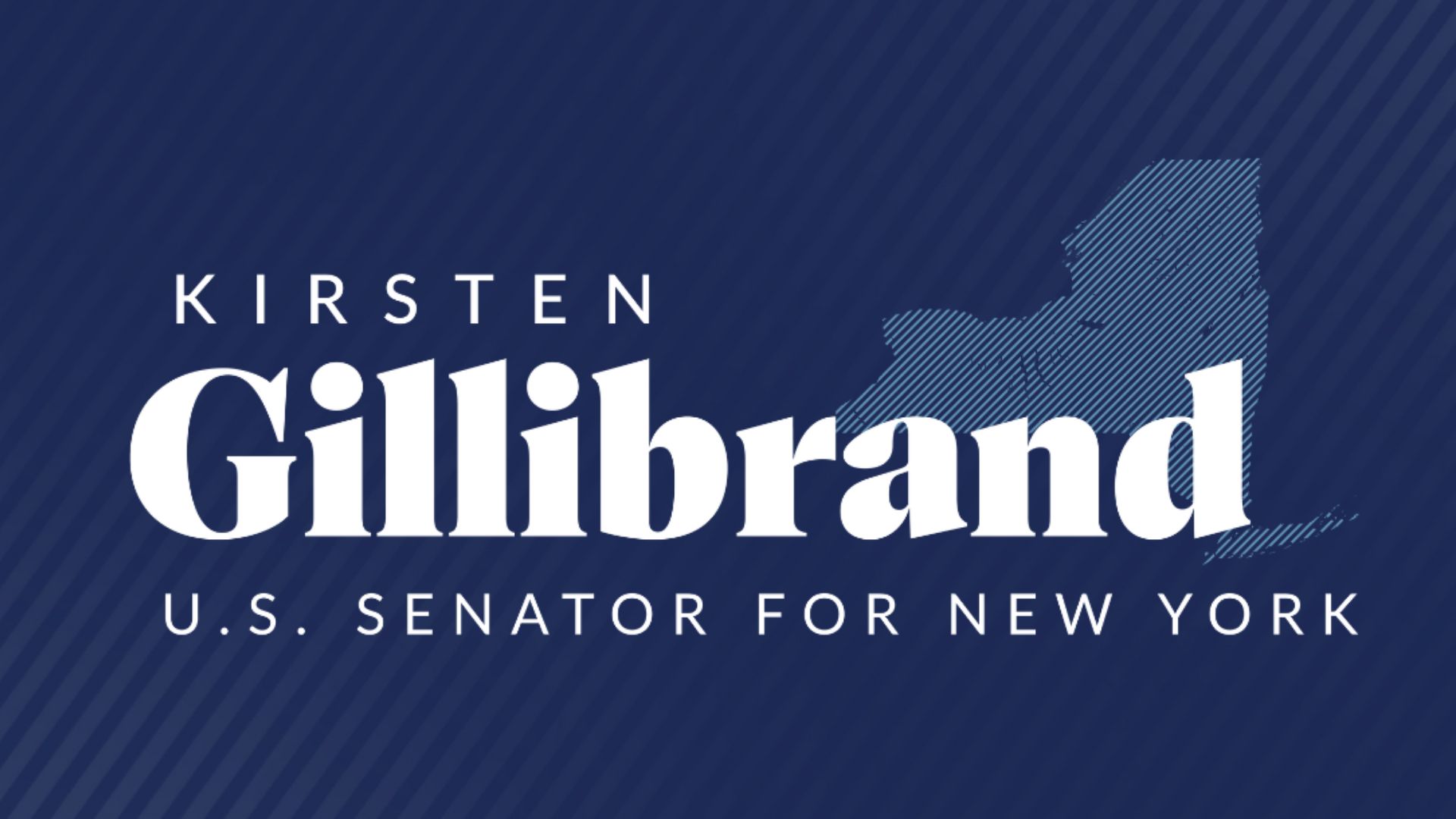State
Gillibrand and fellow lawmakers urge the Trump administration to take immediate action to prevent a nationwide student loan default crisis

New York – A growing wave of concern is sweeping through Congress as student borrowers across the nation face what lawmakers are calling an impending “default cliff.” U.S. Senator Kirsten Gillibrand (D-NY) is joining dozens of her congressional colleagues in demanding that the Trump administration take immediate action to prevent millions of Americans from slipping into financial disaster as student loan payments resume.
The effort, led by Senator Gillibrand alongside Senate Democratic Leader Chuck Schumer (D-NY), Senator Elizabeth Warren (D-MA), and Representative Ayanna Pressley (D-MA-07), includes 68 additional members of Congress who signed a letter urging the administration to confront what they describe as an “unprecedented wave” of student loan delinquencies and defaults. The group warns that failure to act could devastate families and the broader U.S. economy, including tens of thousands of borrowers in New York who are already struggling to stay afloat.
Recent data indicates that more than 5 million student borrowers are either in or near default, while nearly a third of all borrowers—roughly 279,000 of them in New York alone—are delinquent on their payments. Lawmakers say the situation is being made worse by political gridlock and administrative inaction, pointing to Republican opposition to relief programs and changes within the Department of Education that have undermined support for borrowers.
A Looming “Default Cliff”
When the pandemic-era pause on federal student loan payments ended, millions of Americans were expected to resume monthly payments that many simply could not afford. Economists and consumer advocates have described the moment as a “default cliff”—a sudden, steep increase in defaults that could ripple across the economy by reducing consumer spending, damaging credit scores, and keeping families from securing housing or car loans.
Senator Gillibrand said the government cannot afford to ignore the mounting risks.
“As millions of borrowers face the threat of default, the federal government has a responsibility to step in,” said Senator Gillibrand. “A student loan system that pushes people into delinquency instead of helping them build stable futures is broken and unsustainable. I’m proud to join my colleagues in calling on the administration to act swiftly to provide relief and ensure borrowers have a fair chance to get back on their feet.”
The letter from lawmakers outlines a series of urgent steps the Trump administration could take to help borrowers avoid default and stabilize the system. Among the recommendations are clearing a massive backlog of unprocessed repayment applications, reinstating affordable repayment options, pausing collections, and creating an interest-free forbearance period for struggling borrowers.
Lawmakers Warn of Economic Fallout
The stakes, according to the letter, go far beyond individual hardship. The lawmakers argue that widespread defaults could trigger a drag on the economy at large, affecting everything from retail spending to the housing market.
“[T]his default cliff threatens not only individual financial hardship but also has broader economic implications that warrant immediate intervention and mitigation strategies,” the lawmakers wrote.
The call for action is underscored by reports that the Department of Education, under the Trump administration, has reduced staff and weakened the very programs meant to protect borrowers. Since January, more than half of the Department’s employees have been terminated, including key personnel from the Federal Student Aid (FSA) office responsible for processing repayment plans and resolving disputes.
This downsizing has led to a backlog of approximately 1.1 million unprocessed income-driven repayment (IDR) applications, leaving borrowers in limbo without access to the reduced monthly payments that could prevent default.
Warren and Pressley Call Out Administration
Senator Elizabeth Warren (D-MA) issued a sharp rebuke of the administration’s handling of the crisis, arguing that political choices—not lack of options—are to blame for the worsening situation.
“If the administration fails to act, millions of Americans will be pushed to financial ruin, and Trump and Republicans will own this economic catastrophe. It’s time for Secretary McMahon to focus on commonsense solutions, instead of hiking costs for families at every turn,” said Senator Warren.
Representative Ayanna Pressley (D-MA-07) emphasized the disproportionate impact the crisis has on communities of color and low-income households.
“Every day this Administration fails to act, more borrowers—especially low-income, Black, and brown borrowers—are pushed closer to financial catastrophe,” said Congresswoman Pressley. “This isn’t just a policy failure—it’s a moral one. If Trump and Republicans truly cared about working families and following through on their promises to lower costs, they would act now before it’s too late.”
Concrete Steps Urged by Congress
The letter from Gillibrand and her colleagues outlines several immediate actions the Trump administration could implement to prevent the crisis from deepening:
• Clear the backlog of nearly 1.1 million unprocessed IDR applications and abandon plans to deny roughly 500,000 pending cases.
• Establish an interest-free forbearance program to give borrowers time to recover without accumulating additional debt.
• Reverse policies that have raised costs or made it harder for borrowers to qualify for repayment assistance.
• Launch a nationwide outreach campaign to warn at-risk borrowers and connect them with available options before default occurs.
• Pause collections and strengthen safeguards against predatory recovery practices until new systems are in place.
The lawmakers say these measures would not only protect individual borrowers but also preserve economic stability for millions of working families.
“The student loan default crisis is a significant threat to millions of American families and the broader economy. Congress and the Administration have a responsibility to ensure that federal student loan programs support rather than undermine economic opportunity and stability,” the letter concluded.
A Deadline for Answers
In their correspondence, the lawmakers requested that the Department of Education provide detailed answers about how it intends to address the default crisis by October 25, 2025. Specifically, they are seeking transparency on steps taken to reduce delinquencies, clear backlogs, and protect borrowers from aggressive debt collection tactics.
Consumer advocacy groups have echoed these concerns, warning that without immediate changes, the country could see one of the largest mass loan default events in U.S. history.
“Instead of bringing down costs, President Trump and Secretary McMahon are working double time to push millions of struggling borrowers off of an unprecedented default cliff that will be economically disastrous for families and the broader economy,” said Protect Borrowers Policy Director, Aissa Canchola Bañez. “Americans with student loan debt deserve an Administration that protects borrower rights and ensures that student loan borrowers get the relief they are entitled to under the law. The last ten months have demonstrated that the Trump Administration cares more about lining the pockets of their wealthy friends rather than shielding working families from economic ruin. We applaud Senator Warren, Representative Pressley, and their colleagues for holding the Trump Administration accountable and calling on them to take action to protect borrowers and their families from the largest mass student loan default events in modern history.”
Broad Support Across Congress
The push to pressure the Trump administration has gained momentum, with nearly 70 senators and representatives signing onto the letter. Support spans much of the Democratic caucus, including Senators Cory Booker (D-NJ), Tammy Duckworth (D-IL), Bernie Sanders (I-VT), Chris Van Hollen (D-MD), Raphael Warnock (D-GA), and Ron Wyden (D-OR), among others.
In the House, members such as Alexandria Ocasio-Cortez (D-NY-14), Ilhan Omar (D-MN-05), Maxine Waters (D-CA-43), and Rashida Tlaib (D-MI-12) joined in the call for action. The diverse list of signatories reflects the widespread concern that the student loan crisis has transcended partisan politics and now threatens the financial foundation of the middle class.
Gillibrand’s Continued Advocacy
Senator Gillibrand has long been outspoken about the need for federal action on student debt. In recent months, she has criticized the administration’s decision to reject more than 460,000 applications for affordable repayment plans and to suspend forgiveness under the Income-Based Repayment (IBR) program. That suspension, she argued, unfairly denied relief to borrowers who had been faithfully making payments for more than two decades.
Gillibrand’s position is clear: the student loan system, as currently structured, is failing the people it was designed to help. She has called for major reforms to simplify repayment options, cap interest rates, and strengthen protections for borrowers facing financial hardship.
Her latest call to action, joined by nearly 70 other lawmakers, underscores the growing urgency behind what many see as a national economic emergency. With millions of Americans on the brink of default and an administration slow to respond, the coming months could determine the financial stability of an entire generation.
As lawmakers await the Trump administration’s formal response by late October, the pressure continues to mount. For millions of borrowers already juggling bills, rent, and rising costs of living, the difference between action and inaction may mean the difference between financial survival and economic collapse.
In Senator Gillibrand’s words, the challenge ahead is both moral and practical: ensuring that the federal government “acts swiftly to provide relief and ensure borrowers have a fair chance to get back on their feet.”

-

 Local News10 months ago
Local News10 months agoNew ALDI store close to Rochester to begin construction in late 2025 or early 2026
-

 Local News10 months ago
Local News10 months agoRochester Lilac Festival announces exciting 127th edition headliners
-

 Local News7 months ago
Local News7 months agoCounty Executive Adam Bello and members of the county legislature celebrate exceptional young leaders and advocates at the 2025 Monroe County Youth Awards
-

 Local News7 months ago
Local News7 months agoThe 2025 Public Market Food Truck Rodeo series will begin this Wednesday with live music by the Royal Bromleys